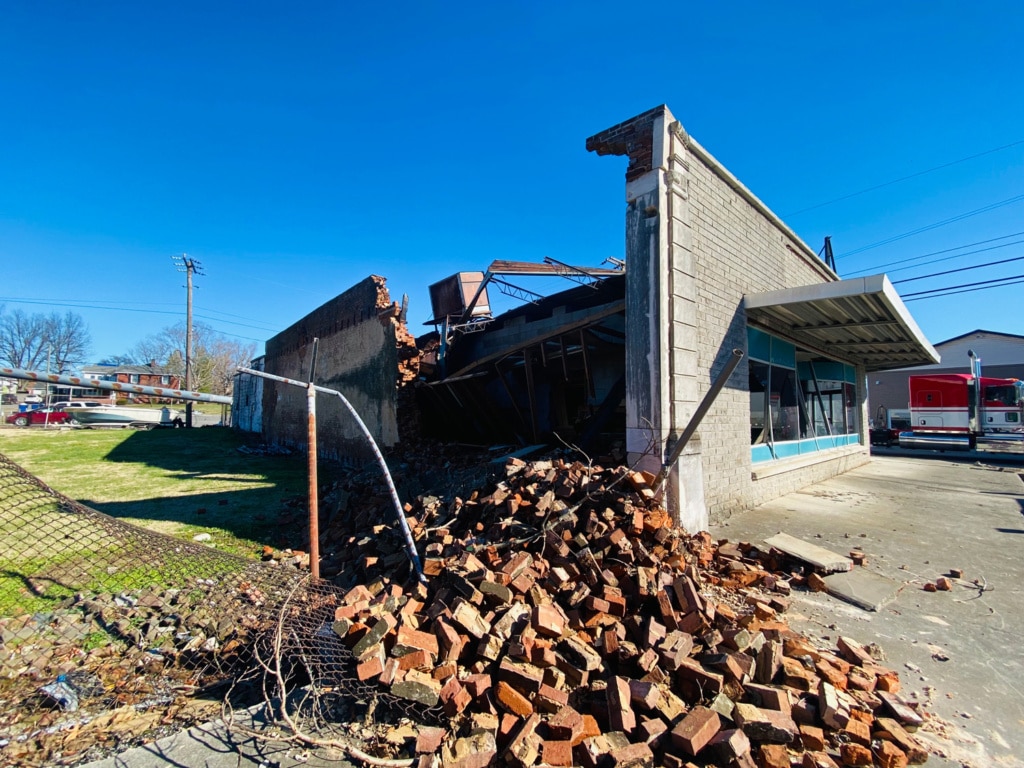Nearly all relief payments to Kentucky disaster survivors from state-run relief funds were made without error, according to reports released Tuesday, one by the Kentucky auditor and another by an inspector general in the Beshear administration.
Republican Auditor Mike Harmon and the Office of the Inspector General of the Kentucky Finance and Administration Cabinet launched reviews of the Team Western Kentucky Tornado Relief Fund and the Team Eastern Kentucky Flood Relief Fund following reporting that relief check payments to disaster survivors had been misdirected to those not impacted. The auditor launched his review after a request by a legislative committee, and the inspector general started her review shortly after.

Both reports found that less than 1% of payments made from the Team Western Kentucky Tornado Relief Fund had been in error, though the reports differed on the amount of funding that was erroneously given out. Neither report found any erroneous payments made from the Eastern Kentucky Flood Relief Fund.
Democratic Gov. Andy Beshear had questioned the timing of Harmon’s audit when it was launched in the summer, calling it “grossly political” given that he was up for reelection. Beshear created through executive orders the two funds, which together sent out tens of millions of dollars that had been donated by people across the country following the 2021 Western Kentucky tornado outbreak and deadly Eastern Kentucky flooding last year.
” … no evidence of bad faith or misappropriation of funds. … The actions by the cabinet were in good faith and appear to have been focused on quickly providing monetary relief to the unfortunate victims of the subject natural disasters.”
– Kentucky Auditor of Public Accounts
The state auditor’s report found $239,785 of “inappropriate” payments made from the more than $40 million of expenditures from the Team Western Kentucky Tornado Relief Fund, or an error rate of 0.57%, with most erroneous payments coming from $1,000 relief payment checks sent to survivors.
The inspector general’s report, by contrast, found 53 payments from the fund making up $69,785 that were “made in error” out of more than $40 million that was expended.
The two reports differed on the amount of donations that were expended from the funds, with the auditor’s report stating about $48 million had been expended and the inspector general’s report stating more than $53 million had been expended.
“After a nearly four-month review, we found that the funds were managed with complete transparency and in accordance with the law,” said acting inspector general Geri Grigsby in a statement. “Staff exhibited strong segregation of duties across all of the fund programs and had strong or overall effective internal controls to guard against waste, fraud or abuse of funds.”
While Grigsby’s report generally commended the work of the Kentucky Public Protection Cabinet (PPC) to monitor and distribute the funds, the report recommended the cabinet formalize or refine an “internal review process” for approving the distribution of funds in the event of future natural disasters.
The GOP-controlled state legislature passed Senate Bill 99 this year that asked the PPC to present a report to lawmakers detailing how donated funds were being distributed. A sponsor of the law Sen. Whitney Westerfield, R-Fruit Hill, had questioned the constitutionality of the creation of the relief funds when the bill was advancing through the legislature.
Harmon’s report addressed several concerns from the Republican-controlled legislature including the funds’ constitutionality. The auditor concluded the funds’ creation was constitutional, but it was “unclear” whether expending the funds without the legislature’s approval violated the state Constitution.
“This presents a novel legal question and (the auditor’s office) is unaware of controlling authority that would enable it to make a determination on this matter,” the report stated. “(The auditor’s office) found no evidence of bad faith or misappropriation of funds on the part of PPC. The actions by the cabinet were in good faith and appear to have been focused on quickly providing monetary relief to the unfortunate victims of the subject natural disasters.”
Both the auditor’s report and the inspector general’s report detailed why relief checks sent to survivors could have gone to the wrong people.
Grigsby’s report stated the PPC had canceled 193 disaster relief checks to survivors for various reasons including potential fraud, wrong names, deaths of those supposed to receive the checks and printing errors.
Harmon’s report stated that because there wasn’t an application for the relief checks, recipients may not have realized the checks were coming. Additionally, an “unclear” memo line on the distribution checks may have created confusion.
“While the (auditor’s office) is unable to determine the exact cause for the excessive number of outstanding checks, our auditors noted it could have been from relying on potentially inaccurate or incomplete addresses from verified data sources for check distribution, and possible creating confusion among those who received payments who were not expecting a payment,” Harmon said in a statement.
The Lantern reported in February about struggles among local long-term recovery groups in Western Kentucky to spend millions of dollars in donations given by the PCC through one of the relief funds. When mentioning the funding that went to long-term recovery groups, the inspector general’s report stated the PPC should try to create a universal application for similar recovery groups to use in the future to create a more uniform process.
This article is republished under a Creative Commons license from Kentucky Lantern, which is part of States Newsroom, a network of news bureaus supported by grants and a coalition of donors as a 501c(3) public charity. Kentucky Lantern maintains editorial independence. Contact Editor Jamie Lucke for questions: info@kentuckylantern.com. Follow Kentucky Lantern on Facebook and Twitter.






